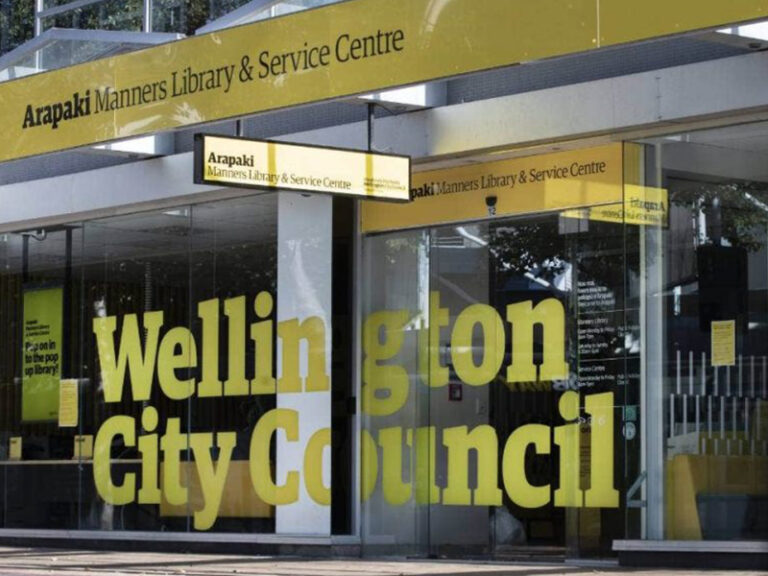The DominionPost recently headlined ‘Wellington Council staff go against councillors’ vote on character housing.’ Council staff were providing advice to the independent commissioners considering submissions on the city’s proposed new district plan.
Councillors Tamatha Paul and Rebecca Matthews were reported as being surprised and displeased and asked why officers’ advice to the commissioners disagreed with the one-vote majority decision by Council last year. Councillor Matthews said council staff going against a vote of the council “calls into question the value of democratic processes”.
Anyone who followed the development of Wellington City’s new District Plan would have seen at least three years of often bitter debate in the Council and in the community about some parts of the proposed new District Plan, especially and bizarrely over the level of protection for inner city character suburbs.
District plans sound boring, but they are important in shaping towns and cities. They guide what can and can’t be done on any given area of land. Can you build or remove a house? A tower block? Is it open space? Heritage? What about noise? Size? Height? Design? Shading? The Resource Management Act stipulates all the required processes to develop district plans and requires councils to review their entire district plans regularly—in theory every 10 years.
All over the country, councils are currently making changes to their district plans to incorporate new government rules. Wellington City Council was already reviewing its entire district plan—a massive job—when major government-imposed changes came along, so these are fitted into the new plan.
A key battleground in Wellington was over the level of protection for inner-city character suburbs. To protect character, the existing District Plan requires a resource consent to demolish any pre-1930s dwelling in Thorndon, Mount Victoria, Aro Valley, Mount Cook, Newtown, Berhampore, and small areas of The Terrace and Lower Kelburn. These rules were developed with community support to provide some protection for areas of buildings because of the high level of collective heritage character in those suburbs. Some people wanted to remove those protections from all or virtually all of the 5,500 homes in these communities in the hope that it would lead to more of them being replaced by high-rise apartments. Others wanted to retain varying levels of protection, often doubted whether large-scale development would be economic in these areas anyway, and said that growth should be directed to other areas of the city. The Proposed District Plan was released for submissions in July last year, with just a quarter of the 5500 houses having any protection as a result of that one-vote majority on Council. Many submitters subsequently disagreed and wanted larger, more joined-up areas of houses to be protected.
The council’s planning officials also disagreed with the majority political decision. They had provided clear advice throughout the debates leading up to the notification of the new district plan that a higher percentage of these suburbs should be protected. Their advice to both the council and commissioners is based on multiple, expert, house-by-house assessments of the character contribution and coherence of the building stock. In other words, it was based on evidence and the recognition that protecting heritage is one of the councils’ many legal responsibilities under the Resource Management Act.
Councillors Matthews and Paul disturbingly seem to not understand several important principles.
1: As required by the law, the district plan that the council agreed to was a draught, not final. It must allow for submissions, hearings, and consideration of that evidence by commissioners. It is inevitable that changes will be made as a result of that process. This is not a checkbox process. Councillors should welcome that the submission processes might lead to changes. There is already a widespread public view that the council doesn’t listen, and councillors surely wouldn’t want to reinforce this by being seen to have closed minds.
2: In resource management hearings, expert advisors, including council planners, are required to adhere to a Code of Conduct for Expert Witnesses, which explicitly says they must impartially assist the decision makers (in this case the commissioners) and that they must not be an advocate for the party that engages them. (in this case, the Council) In other words, experts must provide professional evidence. Their advice would, of course, carry little weight if tainted by political considerations. Lawyers are allowed to be advocates; subject-matter experts are not. Think of that in a criminal court. The firearms expert has to say whether a bullet could or could not come from a given weapon; they cannot make the answer whatever they or their client wants it to be.
Wellington is a city full of people providing expert policy advice, and Wellington LIVE thinks it’s critical that advisors are able to provide free and frank advice based on their expertise to decision makers. It is equally important that politicians understand that their powers are not unlimited, precisely to protect and give confidence to the public they serve. Politics needs to be exercised within the law.
The DominionPost article finished with comments by Councillor Paul that suggested a potential willingness to try to override the decisions of the commissioners if councillors don’t like them and send the decisions on to the Minister for the Environment to make a final call.
These comments are particularly concerning when Wellington LIVE understands Councillor Paul has been studying for a planning qualification and, therefore, all people should know better.
Eight commissioners have been appointed by Council to read thousands of pages of often very deeply thought-through submissions across hundreds of issues, to consider a wide range of expert evidence, including from Council officials, to hear and question hundreds of submitters, and to weigh up competing advice. It is a massive task. We won’t know their decisions for several months, and for some parts of the district plan, until well into next year. The commissioners have been specifically appointed for their experience and professional capabilities and for bringing an open mind to proceedings. All of this is surely a democratic engagement process of far greater depth than debate at the council table between politicians who too often merely bring fixed views to the argument.
Councillors will have none of that depth of the commissioner process, but they seem to be implying they might substitute their opinions for the experience and thoughtful wisdom of the commissioners. Imagine ministers interfering in court decisions or giving instructions to police on operational matters! The very thought of upending the commissioner process must send a chilling message to everyone participating in the process. It also sends a chilling message to ratepayers who are funding it to the tune of millions of dollars, to say nothing of the cost to all the submitters. Wellington LIVE suspects the Minister for the Environment would also take a pretty dim view if presented with having to make a complex set of decisions and reconsider all that evidence if Council allowed politics to trump good process. That would not improve the standing of council or indeed local government generally in the eyes of the central government or the public.
Wellington LIVE will invite Councillors to clarify what they mean.
Charlie Fox – 22 April 2023
TRUTH SEEKER
Instantly run a Quiz with friends... about the article. Interact more & analise the story. Dig in, catch out biased opinions, and "fact check" with TRUTH SEEKER by ONENETWORK WELLINGTONLIVE 👋
Do you agree with the main argument of this article?
Total votes: 0
What was the key battleground in Wellington regarding the district plan?
Bias Analysis
Fact Check Summary
True
Source: The DominionPost article
False
Source: Article content













